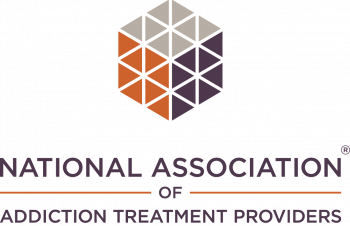The use of heroin, especially over a long period of time, has a lasting effect on the brain. Brain damage is possible as a result of using heroin. It’s important to keep in mind that someone who ceases use of heroin, undergoes treatment, and maintains sobriety can regain much of their cognitive abilities. The experts at TruHealing Gaithersburg can help you or your loved one get their life back on track. Reach out to us today at (833) 625-0398 to speak with a trained representative about heroin addiction treatment options that can help you rebuild your life.
The Effects of Heroin on the Brain
Addiction, in general, changes the way the brain operates. Addictive substances rewire a person’s brain circuitry and hijack the reward system as well. These changes in brain processing can but short-term in response to occasional use or have lasting effects over time.
The good chemicals that people like to talk about, including serotonin and dopamine, are factors in how the brain understands what is pleasant and what is unpleasant. The brain of someone with a substance use disorder is rewired so that pleasure is found almost exclusively from the highly addictive substance. In the mind of the person who has an addiction, the brain confuses the individual into believing the source of pleasure is a reward that outweighs the risks of harm and risk.
Tolerance occurs as the brain gets used to an addictive substance like heroin. This means more heroin is required to achieve the same level of high. This tolerance quickly develops into the cycle of abuse.
There are everyday circumstances that can make it easier for us to understand our brain’s ability to quickly adapt. Psychologists have become increasingly interested in the concept of the hedonic treadmill. The basic concept of the hedonic treadmill is that each time you achieve an expectation, the bar gets higher. For example, if you thought you would be happy with your new car, pretty soon you may desire a better or fancier car.
How Heroin Addiction Develops
Heroin is often injected intravenously directly into the bloodstream. It can also be snorted or smoked. The effects of heroin can last for several hours, however, the rush and sense of intense euphoria only last for a few minutes. There is an intermittent period where a person may slip in and out of consciousness which is commonly referred to as “nodding”. After the high wears off, someone who has developed a tolerance to heroin will begin to feel withdrawal symptoms and, in turn, have cravings.
The process of a brief high, withdrawal, cravings and the desire for more can quickly develop into a vicious cycle. The period of being high becomes less and less noticeable and those with serious addictions are mostly just engaging in a process of “maintenance” to avoid symptoms of withdrawal, having intense cravings, or feeling sick. The point at which someone stops chasing the high and begins simply engaging in maintenance can be alarmingly fast.
Short-term side effects from heroin can include:
- Slowed breathing
- A sense of bodily heaviness
- Dry mouth
- Loss of appetite
- Constipation
- Severe itching
- Mood swings
Long-term side effects can include:
- Collapsed veins from injecting
- Infections or abscesses at injection sites
- Blood clots at injection sites
- Lung infections
- Organ damage
- Viral infections
Over time, heroin abuse can have permanent severe effects on the brain. Structural damage can result from brain inflammation and this can lead to psychological symptoms that are similar to those associated with Alzheimer’s disease.
Other issues associated with brain decline as a result of long-term heroin use can include:
- Confusion
- Personality changes
- Issues with impulsivity
- Depression
- Intensive anxiety
- Paranoia
- Memory loss
The Path to Recovery from Heroin Addiction
After undergoing treatment, doctors are able to have a better sense of the lasting impact of heroin on a person’s brain. This is how a person begins to move forward in recovery. You begin to treat the physical and mental health issues associated with heroin use and figure out how to create the best possible life circumstances. Unfortunately, some problems associated with long-term heroin use are currently not reversible using current science. Keeping that in mind, it’s important to know that those in recovery are still able to live positive and rewarding lives in sobriety even if they have some impairments as a result of long-term addiction.
Contact TruHealing Gaithersburg Today for Heroin Addiction Treatment
It’s important to remember that recovery is always possible. Even if you have suffered some long-term effects as a result of long-term addiction, it’s worth pursuing a life of sobriety in order to enjoy years of moving through the world in a more peaceful and harmonious way. You can find new ways to appreciate the day-to-day after leaving behind the cycle of abuse. Reach out to the professionals at TruHealing Gaithersburg at (833) 625-0398 to speak with a specialist about the benefits of our personalized treatment plans to help you have better days.









